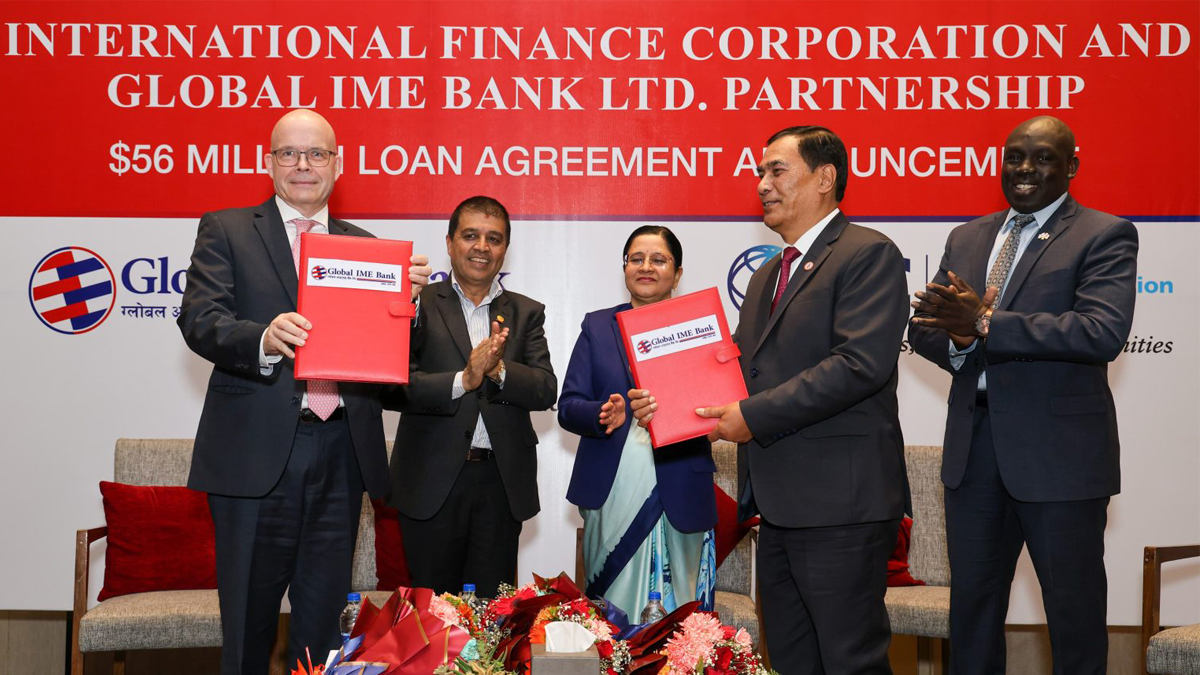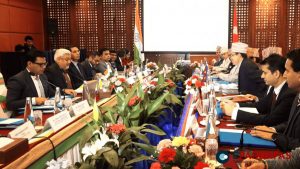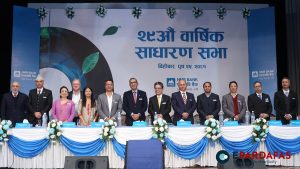In a landmark move to enhance access to finance for smaller businesses in Nepal, including women-owned enterprises, and to drive climate-friendly initiatives, the International Finance Corporation (IFC) is set to invest a significant $56 million in Global IME Bank Limited (GIBL), the largest commercial bank in the country.
The primary objective of this substantial investment is to fortify competitiveness in the small and medium enterprise (SME) finance market. Simultaneously, the investment aims to improve financial inclusion, foster job creation, and support Nepal’s climate goals.
This investment, representing IFC’s largest commitment in Nepal’s financial sector, will empower GIBL to bolster the SME segment, aiding businesses in recovering from the adversities brought about by the COVID-19 pandemic. Particularly, it will extend support to women-owned SMEs (WSMEs) and those located in rural areas.
The funds provided by IFC will play a pivotal role in climate mitigation efforts in Nepal. They will facilitate increased access to climate finance in critical sectors such as clean transportation, climate-smart agriculture, and solar projects.
Remarkably, half of the loan proceeds will be dedicated equally to climate and gender financing for the bank’s SME and retail clients. The remaining 50 percent will be exclusively allocated to on-lending to SMEs in the country. Notably, this marks the first instance of any development financial institution providing gender financing to a bank in Nepal.
SMEs constitute the backbone of Nepal’s economy, contributing 22 percent to the GDP and employing nearly two million people. However, access to finance remains a significant hurdle for 44 percent of SMEs, with an estimated SME finance gap of around $3.6 billion.
The challenges are even more pronounced for WSMEs, with 52 percent facing limited access to finance. In addition, Nepal, ranked as the 10th most affected country by climate change according to the Global Climate Risk Index (2021), is dependent on climate finance to achieve its net-zero emissions target by 2045.
Dr. Neelam Dhungana Timsina, Officiating Governor of Nepal Rastra Bank, expressed enthusiasm for foreign investment in Nepal, highlighting its role as a catalyst for the country’s development. Timsina affirmed the readiness of the Nepal Rastra Bank to provide necessary support in this regard.
Chandra Prasad Dhakal, Chairman of Global IME Bank Limited, expressed delight at the continuous strategic support from IFC, underscoring its role in boosting the bank’s standing among peer institutions and internationally.
Ratna Raj Bajracharya, Chief Executive Officer of Global IME Bank, emphasized the commitment to sustainability through climate and gender financing. Bajracharya acknowledged the significance of bridging the resource gap in the energy sector and addressing gender disparity by providing financial support to empower women in rural Nepal.
IFC’s role extends beyond financial investment. The organization will assist GIBL in establishing its climate and gender finance business lines while providing support in developing a robust risk management framework.
Martin Holtmann, IFC’s Country Manager for Nepal, Bangladesh, and Bhutan, highlighted that one of IFC’s strategic priorities in Nepal is to support financial inclusion and sector stability. This investment, he explained, aims to strengthen gender and climate finance markets, catalyzing private sector funding for climate-smart assets and WSMEs.
Babacar S. Faye, Resident Representative, IFC Nepal, expressed confidence that this investment would significantly contribute to providing financing support to Nepali SMEs.
This investment represents the third partnership between IFC and GIBL. In 2022, IFC extended a trade finance facility under its Global Trade Finance Program (GTFP), incorporating a special provision for green trade financing, marking IFC’s first green trade finance line globally at that time.














Comments